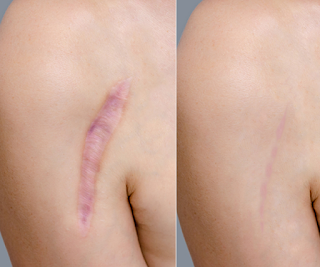Hymenoplasty Surgery in Hyderabad
Introduction:
Hymenoplasty, also known as hymen reconstruction surgery, is a surgical procedure designed to repair or reconstruct the hymen, a thin membrane located at the entrance of the vagina. This comprehensive guide aims to provide a detailed overview of hymenoplasty surgery, including its procedure, considerations, benefits, risks, and recovery process.
Understanding Hymenoplasty Surgery:
The hymen is a thin tissue membrane that partially covers the vaginal opening. In some cultures, the presence of an intact hymen is associated with virginity, and its absence may carry social or cultural implications. Hymenoplasty surgery is sought by individuals who wish to restore the hymen for personal, cultural, or religious reasons.
Procedure:
Hymenoplasty surgery is typically performed on an outpatient basis under local or general anesthesia, depending on the patient's preference and the surgeon's recommendation. The procedure involves reconstructing the hymen by suturing the edges of the existing tissue or by using tissue grafts from other parts of the body. The surgeon carefully stitches the tissue together to create a membrane that mimics the appearance of a natural hymen.
Considerations:
Before undergoing hymenoplasty surgery, patients should consider the following factors:
Motivation: Patients should have a clear understanding of their reasons for seeking hymenoplasty and should be motivated by their own desires rather than external pressures.
Cultural and Religious Beliefs: Patients should consider how hymenoplasty aligns with their cultural and religious beliefs and whether it addresses their personal values and priorities.
Expectations: Patients should have realistic expectations about the outcomes of hymenoplasty surgery and understand that the procedure may not guarantee complete restoration of the hymen or virginity.
Emotional and Psychological Impact: Patients should be aware of the potential emotional and psychological impact of hymenoplasty surgery, including feelings of anxiety, guilt, or shame, and should seek support from a qualified mental health professional if needed.
Benefits:
Hymenoplasty surgery offers several potential benefits, including:
Restoration of Virginity: Hymenoplasty surgery can create the appearance of an intact hymen, which may satisfy cultural or religious expectations surrounding virginity.
Psychological Well-being: For some patients, hymenoplasty surgery can provide a sense of emotional relief and empowerment by allowing them to reclaim control over their bodies and identities.
Cultural and Social Acceptance: Hymenoplasty surgery may help patients navigate social and cultural norms related to virginity and marriage, allowing them to avoid stigma or discrimination.
Enhanced Intimacy: Some patients may experience increased confidence and comfort in intimate relationships following hymenoplasty surgery.
Risks and Complications:
Like any surgical procedure, hymenoplasty surgery carries certain risks and potential complications, including:
Infection: There is a risk of infection at the surgical site, which may require antibiotic treatment.
Bleeding: Excessive bleeding during or after surgery may occur, requiring medical intervention.
Pain and Discomfort: Patients may experience pain, discomfort, or swelling in the genital area following surgery, which can be managed with pain medication.
Scarring: Hymenoplasty surgery may result in visible scarring at the surgical site, although efforts are made to minimize scarring and achieve natural-looking results.
Unrealistic Expectations: Patients who have unrealistic expectations about the outcomes of hymenoplasty surgery may experience disappointment or dissatisfaction with the results.
Preparation and Recovery:
Before undergoing hymenoplasty surgery, patients will undergo a thorough consultation with their surgeon to discuss their goals, medical history, and expectations. Pre-operative instructions may include quitting smoking, avoiding certain medications, and abstaining from sexual activity.
Recovery from hymenoplasty surgery typically involves a period of rest and recovery, during which patients are advised to avoid strenuous activities and sexual intercourse for several weeks. Patients may experience mild discomfort, swelling, or bruising in the genital area, which can be managed with pain medication and cold compresses. Follow-up appointments will be scheduled to monitor healing progress and address any concerns.
Conclusion:
Hymenoplasty surgery is a surgical procedure designed to repair or reconstruct the hymen for personal, cultural, or religious reasons. While it offers several potential benefits, including restoration of virginity and psychological well-being, it is important for patients to consider the risks and potential complications associated with the procedure. By carefully considering their motivations, expectations, and cultural beliefs, patients can make informed decisions about whether hymenoplasty surgery is right for them. Additionally, selecting a qualified and experienced surgeon and following pre-operative and post-operative instructions can help ensure a safe and successful outcome.
.jpg)



Comments
Post a Comment